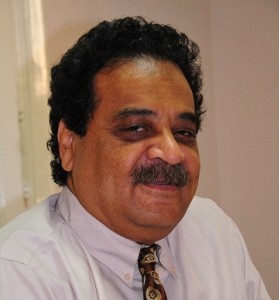
Contrary to what some have said, the available evidence suggests that the Muslim Brotherhood’s Guidance Bureau chose Hesham Qandil to head the new government. Most Egyptians received the news of Qandil’s appointment with surprise that quickly turned into deep resentment, leading many to lose interest in following the news of the new cabinet formation.
In my opinion, the most offensive part of the decision is the gap between the qualifications of the prime minister promised by President Mohamed Morsy and the qualifications of Qandil. The President had promised that he would choose “an independent, national personality with significant political experience and who enjoys broad national consensus,” a description that cannot apply to Dr. Hesham Qandil. At worst, he is a member of Muslim Brotherhood and at best he can be counted among their supporters. Moreover, he is a political unknown with little experience and, as such, can neither be a point of consensus nor disagreement.
What is also surprising is that Qandil served as the Minister of Water Resources and Irrigation during the last year, a period that witnessed a great deal of interest in water issues due to Egypt’s relations with other African countries as well as a number of repeated irrigation and water navigation crises. Despite that, he had no presence worth mentioning. When I first learned of the appointment and called my friends to inform them before anyone else, their response was invariably “Hesham who? Who is Hesham Qandil?” I had to repeat the name several times before I was forced to recount what I knew about Qandil’s history, which at the time was restricted to the fact that he worked as Minister of Irrigation during the previous year. Since then, not a lot of information has been added to my knowledge of his background except that he worked as a press secretary in the Ministry of Irrigation between 1999 and 2005 and with the African Development Bank after that until 2011. None of this makes him “an independent, national personality with significant political experience and who enjoys broad national consensus.”
The Brotherhood did not stop breaking their promises with the appointment of Qandil, as the new cabinet, that Morsy promised would include representatives of all political movements. The cabinet did not even include a minister from one of the other Islamist political currents such as the El-Nour party, the largest ally of the Muslim Brotherhood. What is even more comic is that the Ganzouri cabinet, which the Muslim Brotherhood had attempted to subject to a no confidence vote and which they criticized for hindering their political program, is the same cabinet from which nine ministers were chosen in the Qandil government. The President himself went even further and appointed Ganzouri as an advisor.
The Muslim Brotherhood has always maintained a noticeable distance between its announced positions and what they actually do. Some see the Brotherhood’s inability to remain committed to their promises as political stupidity or a mistake in the same way that the same people saw the actions of the Mubark regime as political stupidity. In my opinion, the Brotherhood, like the Mubarak regime, operates according to its own logic which is different to the logic of outside observers. The logic of the Brotherhood, which will be dealt with in detail in a later writing, always makes a distinction between promises and action. They promised, for example, that they would not run a candidate for President, only to go back on their word and run not just one, but a reserve candidate aswell. Previously the organisation promised not to widely contest the parliamentary elections, but then contested seats in every district. After that, they promised that the chairmanships of the parliament’s committees would be distributed among the all various political currents according to the principle of consensus, only to split the positions with the El-Nour party. When it was time to form the constituent assembly, the brotherhood said that it would represent all social and political movements, but broke that promise as well before being forced to back down. The same cycle repeated itself when the second constituent assembly was formed.
In this way we can recount tens of examples of the Brotherhood’s unwillingness to follow through on its promises, indicating an underlying logic that has its reasons. Explaining the contours of this logic and its reasons is a long story and I will explore later.




